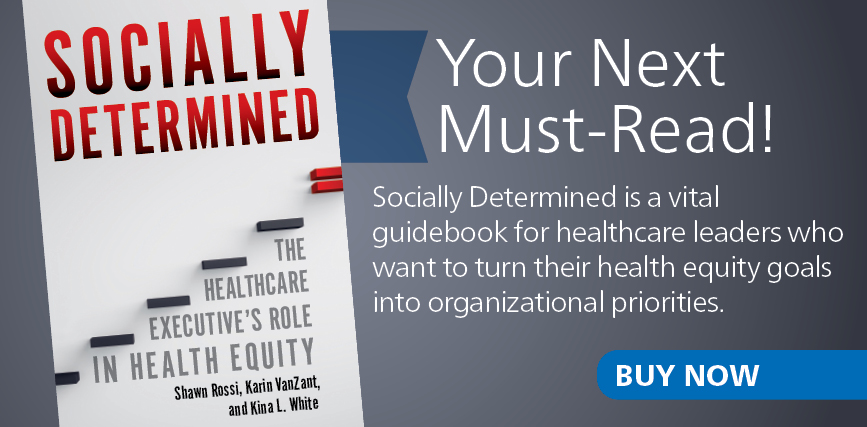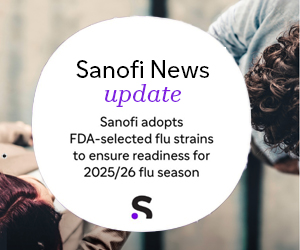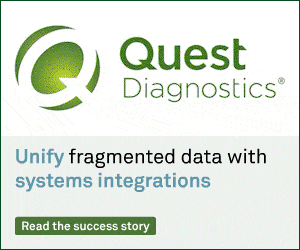Lab ownership is a key driver of health system growth
Why retain your lab? Here are 5 data-driven reasons why retaining your hospital lab can make a powerful impact on the financial well-being of the entire health system.

- Exploring Cost-Effectiveness of Flu Vaccines
- Monthly Membership Perk:
Crafting Values That Drive Ethical Decision Making - Boston Cluster Puts You at the Forefront
- Share the Value of ACHE Membership and Win
Exploring Cost-Effectiveness of Flu Vaccines
With rising healthcare costs, health systems may seek to optimize their vaccine strategies to maximize both population health outcomes and cost efficiency14.
Influenza remains a significant public health concern in the United States and globally, as evidenced by the 2024–2025 flu season, which was one of the worst in decades and saw flu-related hospitalization rates at a 15-year high2. The flu is particularly concerning among high-risk groups, including individuals with chronic conditions, those with compromised immune systems and older adults3.
Recent advancements in vaccine technologies aim to enhance the effectiveness of flu vaccines compared with traditional standard-dose influenza vaccines7,8. Though these enhanced vaccines may offer substantial benefit to vulnerable populations, they do come with higher costs; and healthcare leaders and administrators must weigh the advantages of newer vaccine technologies against their financial implications6.
A recent modeling study published in Vaccine conducted an analysis to determine the cost-effectiveness of standard dose traditional vaccines versus the newer vaccine technologies6.
The findings indicate recombinant influenza vaccines, one of the newer vaccine technologies, would result in thousands fewer influenza related hospitalizations, office visits and influenza infections and is cost effective relative to standard dose influenza vaccines among working age adults, particularly those 50-64 years6.
This study6 supports the consideration of health systems and policy may opt for a preferential product in select age and risk groups (eg. 50–64-year-olds) to maximize their cost-benefit ratios.
Visit Sanofi Vaccines Medical Microsite for references and more details on this study.
MAT-US-2504585 P v1.0 EXP 18 MAY 2026
The content contained in this summary was developed by Sanofi Medical Affairs for scientific exchange and medical purposes only. Do not copy or distribute.
Sanofi, an ACHE Premier Corporate Partner, provided the content above.
Monthly Membership Perk:
Crafting Values That Drive Ethical Decision Making
Frankie Perry, RN, LFACHE, presents several case studies that reflect on the typical challenges faced by healthcare executives, such as medical errors, physician impairment, coworker conflict, gender discrimination and more. Perry examines the executive’s ethical responsibilities and presents the business case for ethics management. The author advocates that managers must keep in mind ethical implications when making managerial decisions.
In Chapter 17, “Deciding Values,” the author identifies seven components of the values-based decision-making process and looks at how these components affect our ability to make decisions. Values, or things that matter most, are the biggest drivers of choices and decisions that are made.
We hope you enjoy June’s Membership Perk—Chapter 17 from The Tracks We Leave, complimentary this month available to all ACHE members. Thank you for being a member of ACHE.
Boston Cluster Puts You at the Forefront
Healthcare leaders are gathering in Boston July 14–16 to stay informed about the latest innovations and strategies in the healthcare industry. Prepare for the future of healthcare by expanding your expertise, enhancing your skills and networking with peers.
The interactive seminars—developed by respected healthcare experts—give you the skills, knowledge and mindset required to help you lead your staff and organization toward future success.
Personalize your experience by selecting from sessions that include: “Making Healthcare Better: Leveraging a High Reliability Operating System to Build and Sustain Performance Excellence,” “Optimizing Engagement and Performance in a Healing Ecosystem: Creating a Climate of Workforce Thriving,” or “Aligning Operations with Employee Engagement Strategies to Drive Positive, Sustainable Outcomes.”
You’ll be eligible to earn up to 24 ACHE In-Person Education credits.
For a full description of the seminars and to register, visit the 2025 Boston Cluster.
Share the Value of ACHE Membership and Win
Like Nancy A. Susick, RN, FACHE, you, too, can get rewarded for recruiting colleagues to join ACHE or encouraging Members to advance to Fellow through the Leader-to-Leader Rewards Program. In addition to earning points, those who recruit or advance the most members in one of three areas—hospitals and healthcare settings, academia or the military—are recognized at the Congress on Healthcare Leadership during the Malcom T. MacEachern Memorial Lecture and Luncheon.
Susick, who recruited the most members from hospitals and healthcare settings, participated in the program last year and found value beyond the perk of reward points. “It is important to me to give back and encourage other healthcare professionals to become members of ACHE,” she says. “The Leader-to-Leader Rewards Program is a great mechanism for me to encourage others to join ACHE and start receiving the multiple benefits that I have received,” she says.
This program recognizes ACHE Members with reward points that can be redeemed for discounts on ACHE education programs and books or a selection of ACHE merchandise. Visit Leader-to-Leader Rewards Program to learn more or contact the Customer Service Center at (312) 434-9400 or contact@ache.org.



